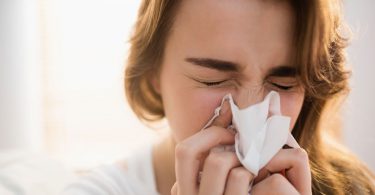
Photo by National Cancer Institute on Unsplash.
Urine incontinence, also known as involuntary leakage of urine is something that affects about 50% of adult women at some point in their lives. With age, these percentages only go higher, about 75% of women who are over 65 reports that they have had urine leakage in the past.
Incontinence can be caused by many factors one of them being Polycystic Ovary syndrome. Many women that are overweight can experience incontinence by having PCOS, but it’s not limited to them. Every woman who has PCOS can experience incontinence.
What Is Polycystic Ovary Syndrome
Polycystic ovary syndrome or PCOS for short is a problem related to hormones that usually is going to appear in the reproductive years. If you have PCOS chances are you are not going to experience periods very often or you will have periods that last many days. In some cases, it’s possible you will have too much androgen hormone in your body.
With polycystic ovary syndrome, there is going to be the development of many small pockets of fluid along the edge of the ovary, and these are called cysts. These small cysts contain immature eggs that are called follicles. And those follicles fail to regularly release eggs.
There is no exact cause of PCOS, but you can lower the risk of some long-term complications like heart disease and type 2 diabetes. Lowering the risk is tied to early diagnosis and treatment, also weight loss is advisable.
Can POCS Cause Urinary and Bladder Issues
Women who have POCS may experience pain in the pelvic region where the cysts are forming and pressing the bladder and rectum. Some of the associated symptoms include nausea, urinary conditions, and constipation.
There are a lot of reasons why women who have polycystic ovary syndrome may experience bladder issues and urinary incontinence. Many women have high testosterone levels, and it’s common for someone who has high testosterone levels may have a problem with the bladder.
Another problem women can face is being overweight because it can put pressure on the pelvic floor that supports the bladder and it can lead to incontinence. Also, women that had to undergo surgeries like hysterectomies can have bladder problems because the pelvic floor muscles don’t support the bladder effectively like they used to.
How to Treat It
Although polycystic ovary syndrome cannot be cured, the symptoms can be managed. Here we are going to go through how to manage the symptoms of incontinence related to POCS. While you wait for the results of these methods to start working you may need to use bladder-leak underwear for women.
These are not some extreme methods, primarily it’s going to focus on changing the lifestyle for the better. So, apart from the problems with incontinence and POCS, you can see your overall health getting better.
Remember that these are just methods with no guarantee that it’s going to work, if you have severe symptoms there are surgical procedures that can help you improve your fertility and urinary incontinence.
1. Pelvic Floor Muscles
One of the most important things is to do pelvic floor exercises better known as Kegels. These are the muscles that control your urine flow. Kegel exercises can improve bladder control and reduce incontinence symptoms.
To do these exercises you need to locate the muscles that are used to control your bladder. Then you will need to contract and hold them for a little while. For the best effect, you will need to repeat this process a few times a day and gradually increase the time you are contracting them.
2. Manage Weight
Women that have PCOS have a higher risk of being overweight which can increase the incontinence symptoms. Losing weight with exercise and a healthy diet can reduce the symptoms of incontinence and reduce pressure on your bladder and by that improve bladder control.
3. Drink Plenty of Water
You may find this counterintuitive but drinking a lot of water can actually help you with incontinence. The key here is not to overdo it because if you overdrink it you can have problems with water putting extra pressure on your bladder and making your incontinence even worse.
You should space out your water intake throughout the day, this way you can’t irritate your bladder by being dehydrated.
4. Avoid Bladder Irritants
There are certain foods and drinks that can irritate your bladder and make your incontinence symptoms even worse.
Some of the foods and drinks that are common in our diets but are bad for the bladder are:
- Caffeine
- Alcohol
- Spicy Food
- Citrus Fruits
You should find the diet that suits you without any of these beverages and foods.
5. Talk to Your Doctor
If you are having incontinence it’s best to search for a medical expert’s opinion. They can find the underlying problem and how to treat it. They will either give you a prescription for medication or they will refer you to a specialist such as a urologist or a pelvic floor physiotherapist.
It is very important to consult your doctor about incontinence because doctors can prevent it from impacting your life in a bad way.
Closing Thoughts
We’ve covered everything you need to know about the connection between polycystic ovary syndrome and urinary incontinence in women.
We are sure that if you follow our methods you can manage your incontinence very well, but remember, if there are no signs of getting better or even if it starts to worsen you should see your doctor.




